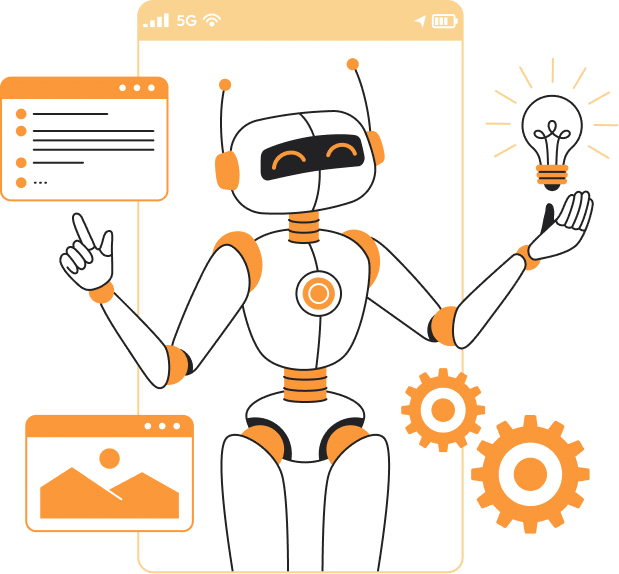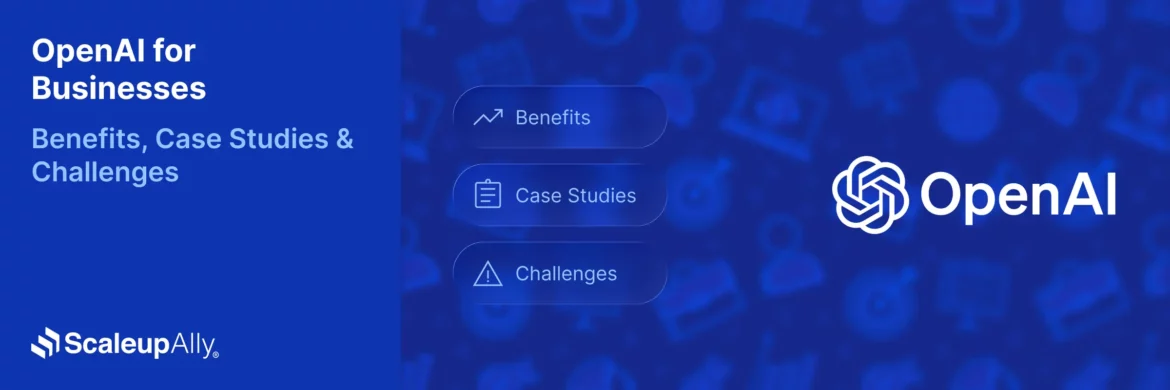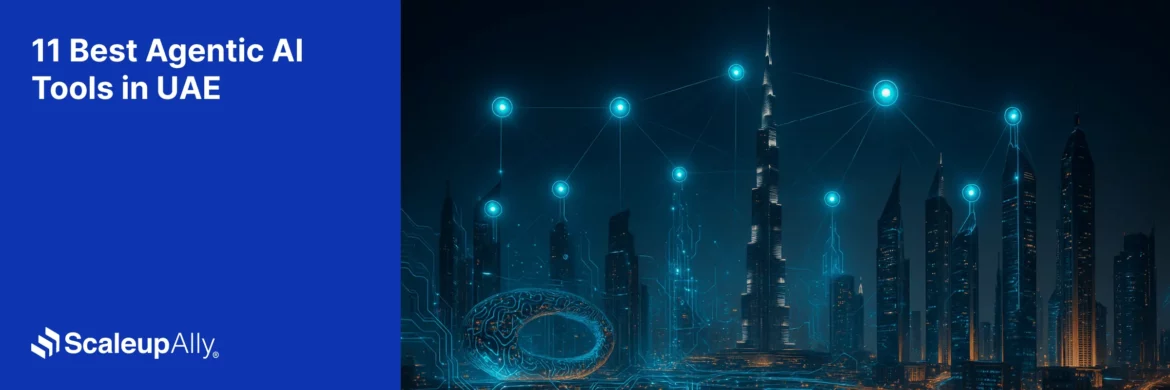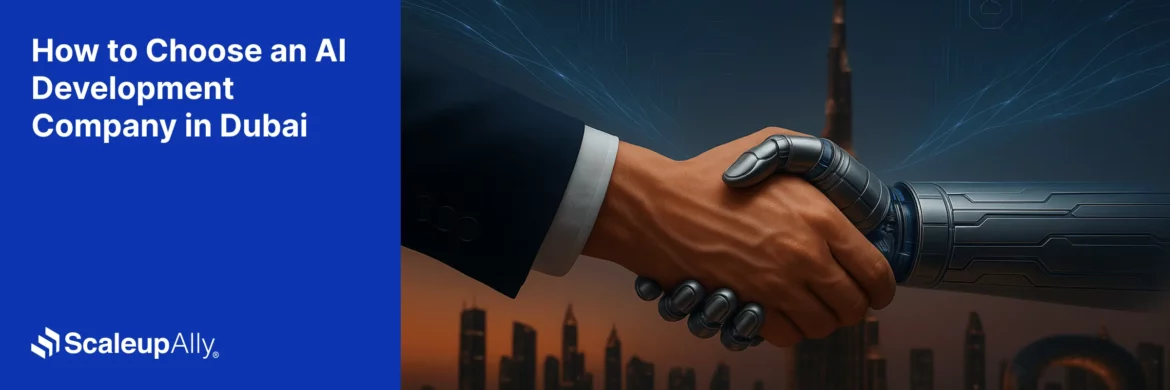
Generative AI in Procurement: Top Use Cases and Challenges
Manu Jain | April 3, 2025 , 14 min read
Table Of Content
Supply chain and procurement leaders are excitedly observing the emergence of ChatGPT and other generative AI bots like Bard and Claude. They are curious about how generative AI can enhance human decision-making in various areas of the enterprise, including sales, marketing, purchasing, and supply chain management.
IBM recently announced a hiring pause to reassess 7,800 current and future roles that AI could handle efficiently, making headlines in the process.
Understanding how innovative startups in the procurement space can harness generative AI and how professionals across different industries can leverage these tools to their advantage is essential.
However, it’s equally important to avoid common pitfalls.
Key Takeaways
- AI Enhances Procurement: Generative AI improves decision-making, automates tasks, and optimizes supplier relationships in procurement.
- Cost Savings & Efficiency: AI reduces procurement costs, streamlines workflows, and enhances operational efficiency for businesses.
- Risk Management: AI helps identify potential supply chain risks early, allowing businesses to take proactive measures.
- Challenges Exist: Data quality, integration, skill gaps, and ethical concerns must be addressed for AI adoption success.
- Strategic Adoption Required: AI’s success depends on thoughtful implementation, human expertise, and continuous optimization.
How is Gen AI used in Procurement?
- How is Gen AI used in Procurement?
- Benefits of Using Gen AI in Procurement
- Use Cases of Generative AI in Procurement
- Challenges of Implementing Gen AI in Sourcing and Procurement
- 6 Best Practices of Using Generative AI in Procurement
- The Future of Generative AI in Procurement
- Conclusion
- Frequently Asked Questions (FAQs)
- Similar Articles Around Generative AI
Using generative AI in procurement is a transformative solution that enables analyzing vast datasets for contract optimization, demand forecasting, and trend prediction to identify potential risks. The obtained insights from Gen AI integration can help professionals manage and streamline supplier relationships & performance to make accurate decisions quickly.
Companies that leverage generative AI in procurement can also automate processes like generating purchase orders, supply management, and inventory optimization to ensure compliance fulfilment. Altogether, its use can make the supply chain agile & resilient by improving operational effectiveness while keeping costs low.
Now that you know how Gen AI can be used in procurement processes, let’s briefly explore the varied benefits it offers, followed by studying its optimal use cases in enterprise segments.
Benefits of Using Gen AI in Procurement
Incorporating Gen AI in the procurement processes can greatly benefit supply chain management. Here are some key advantages for the same:
1. Improved Decision Making
Generative AI, or Gen AI, can handle vast data sets, simplifying how procurement experts understand information and make smart choices. Using data analysis and machine learning, Gen AI can suggest actions, helping procurement teams save time and money by improving their workflows and finding ways to cut costs. This technology is revolutionizing procurement practices, and companies that embrace it are better positioned to outperform rivals.
2. Cost Savings
Procurement expenses make up a large part of total business spending. Using artificial intelligence can help companies improve their procurement methods and cut costs. AI, including Gen AI, can automate procurement, save money, and enhance supplier relationships. This leads to improved efficiency, better finances, and competitive advantage.
3. Efficiency
AI can assist procurement professionals in streamlining their workflow and enhancing decision-making processes. AI solutions offer valuable insights and recommendations by analyzing large data sets in real time, facilitating informed decisions. This saves time and effort and enhances the accuracy and efficiency of procurement. Furthermore, AI aids in identifying risks and opportunities, empowering professionals to take proactive measures.
4. Risk Mitigation
Gen AI employs sophisticated algorithms and machine learning methods to spot possible business hazards, like supply chain issues or supplier performance. By catching these risks early, Gen AI enables businesses to take preemptive actions to address them, preventing them from becoming serious problems. This approach saves businesses time and money, ensuring smooth operations and customer satisfaction.
5. Supplier Relationship Management
Using Generative AI, companies can review how well suppliers are performing, find areas where they can improve, and focus on strengthening relationships with suppliers. This data can help organizations negotiate better deals with suppliers, saving money and increasing profits. In short, Generative AI is key to helping businesses improve their supply chain management and meet their goals.
6. Compliance
As organizations grow and expand, it becomes increasingly important to maintain compliance with procurement policies, regulations, and ethical standards. That’s where Generation AI comes in.
By leveraging advanced technologies such as machine learning and natural language processing, Gen AI can help ensure that all procurement processes are aligned with the company’s policies and local and international regulations. Additionally, Gen AI can analyze data and provide recommendations that help organizations make more ethical procurement decisions.
Need Data-Driven Procurement Insights?
Utilise AI analytics to make informed procurement decisions.

Use Cases of Generative AI in Procurement
Here are some potential use cases of generative AI in procurement:
1. Supplier Relationship Management
Generative AI can identify patterns indicating when a supplier will likely increase prices, allowing procurement teams to take proactive measures, such as renegotiating contracts or seeking alternative suppliers. It analyzes past interactions and negotiations to predict supplier behavior.
2. Demand Forecasting
Generative AI can provide accurate demand forecasts by analyzing historical data and market trends. An example is a retail chain using this technology to predict the demand for certain products during specific seasons, optimize inventory levels, and reduce excess stock.
3. Contract Analysis
Generative AI can review and extract key contract information, such as payment terms, delivery schedules, and termination clauses. This can streamline the contract review process, ensuring that procurement teams know critical details and deadlines.
4. Sourcing Optimization
Generative AI can identify the best suppliers for specific products or services based on various factors, such as price, quality, and delivery time. For instance, a manufacturing company can use this technology to quickly identify suppliers that offer the best price and quality for raw materials.
5. Automated Purchase Order Generation
Generative AI can automate the generation of purchase orders based on predefined criteria, such as inventory levels and demand forecasts. This can streamline the procurement process, reducing the time and effort required to place orders.
Challenges of Implementing Gen AI in Sourcing and Procurement
Implementing Generation AI in sourcing and procurement can bring significant advantages, but it also presents some challenges.
Here are a few challenges which you should be aware of:
1. Data Quality and Availability
Gen AI relies heavily on data; sourcing high-quality, relevant data can be challenging. Data must be accurate, up-to-date, and consistent across sources.
2. Integration with Existing Systems
Integrating Gen AI with existing procurement systems and processes can be complex and require significant changes to ensure compatibility and seamless operation.
3. Skill Gap
Implementing Gen AI requires specialized skills, such as data science, machine learning, and AI, which may not be readily available within the procurement team. Training or hiring experts may be necessary.
4. Ethical and Legal Considerations
Gen AI raises ethical and legal questions, especially regarding data privacy, bias, and accountability. Ensuring compliance with regulations such as GDPR and ethical guidelines is crucial.
5. Change Management
Introducing Gen AI can disrupt existing workflows and require employees to adapt to new working methods. Effective change management is essential to ensure successful adoption.
6. Costs
Implementing Gen AI involves upfront costs for technology, training, and integration. Organizations must carefully evaluate the return on investment (ROI) to justify these expenses.
7. Maintenance and Upkeep
Gen AI systems require ongoing maintenance, updates, and monitoring for optimal performance. This can be resource-intensive and require dedicated support.
8. Security Risks
Gen AI systems can be vulnerable to cybersecurity threats like data breaches and malicious attacks. Security measures must be in place to protect sensitive information.
6 Best Practices of Using Generative AI in Procurement
Successfully integrating generative AI into procurement requires a strategic approach that balances technology, human expertise, and ethical considerations. Here’s how to ensure a smooth and impactful implementation:
- Set Clear Goals and Use Cases
Start small with well-defined, measurable objectives—whether it’s automating purchase orders, analyzing supplier performance, or streamlining contract management. Prioritize AI applications that free up procurement professionals for strategic decision-making. - Prioritize Data Quality and Integration
AI thrives on high-quality, accessible data. Begin with available data and refine it over time. Seamlessly integrate AI with existing procurement systems to ensure smooth data flow and accurate insights. - Foster Human-AI Collaboration
AI should enhance—not replace—human expertise. Equip procurement teams with the necessary training to work alongside AI and encourage a culture of experimentation to explore AI’s full potential. - Address Ethical and Legal Considerations
Ensure compliance with data privacy and security regulations. Mitigate biases in AI algorithms to maintain fairness, and uphold transparency so stakeholders understand AI’s decision-making processes. - Engage Suppliers and Build Trust
Involve suppliers in the AI adoption process to gain their buy-in. Communicate AI’s benefits, maintain transparency about data usage, and demonstrate how AI-driven insights can improve supplier relationships. - Plan for Scalability and Long-Term Success
Design AI solutions that can adapt to growing data complexity. Establish clear internal guidelines for AI usage and invest in continuous training to keep procurement teams ahead of evolving AI trends.
The Future of Generative AI in Procurement
The evolution of Generative AI in procurement holds a promising future, with several trends and developments expected to shape it.
1. Optimized Supplier Selection
Generative AI can analyze historical procurement data to identify patterns and trends, helping companies choose the best suppliers based on factors like reliability, quality, and cost-effectiveness. A company looking for a new packaging supplier could use Generative AI to suggest suppliers based on past performance and current market conditions.
2. Demand Forecasting
By analyzing past procurement data and external factors like market trends and economic indicators, Generative AI can help predict future demand for products and services. This can assist procurement teams in making informed decisions about inventory management and supplier contracts. For instance, a retailer could use Generative AI to anticipate spikes in demand for certain products during holidays or seasonal events.
3. Automated Contract Management:
Generative AI can streamline the contract management by automatically generating, reviewing, and updating contracts based on predefined criteria and legal requirements. This can help reduce the time and effort required for contract negotiations and ensure compliance with regulations. For example, a company could use Generative AI to generate standardized procurement contracts for routine purchases quickly.
4. Risk Management
Generative AI can analyze various data sources, such as supplier performance, market conditions, and geopolitical factors, to identify potential risks to the supply chain. For instance, Generative AI could alert a procurement team to a potential supplier bankruptcy based on financial data, allowing them to proactively find alternative suppliers.
5. Personalized Procurement Experiences
Generative AI can analyze individual preferences and past procurement behavior to provide personalized recommendations and insights. For example, a procurement platform could use Generative AI to suggest suppliers and products based on a buyer’s previous purchases and feedback, enhancing the overall procurement experience.
Conclusion
AI is undeniably revolutionizing the supply chain and procurement sectors. It enables industry leaders to efficiently predict and resolve complex issues, accelerate research and data analysis by hours or even days, and simplify intricate information into understandable sentences. AI will become invaluable as challenges like talent shortages, supply chain disruptions, and economic pressures persist.
However, it’s important not to get caught up in the AI “hype.” This technology requires careful integration, not blind adoption. It’s a dynamic force that demands continuous attention and thoughtful adaptation.
By combining AI’s capabilities with human expertise, procurement and supply chain professionals can navigate uncertainties more effectively and maintain agility in the procurement industry.
Frequently Asked Questions (FAQs)
Q: What is the future of Generative AI in procurement?
The future of Generative AI in procurement is expected to involve advanced data analytics, predictive analytics, automation, personalization, blockchain integration, collaborative platforms, augmented intelligence, and a focus on ethical sourcing practices.
Q: What are the key considerations for organizations looking to adopt Generative AI for procurement?
Key considerations include understanding the specific needs and goals of the organization, ensuring data readiness and quality, identifying the right technology and expertise, evaluating the costs and benefits, and planning for implementation and integration.
Q: How can Generative AI be integrated into existing procurement systems?
Generative AI can be integrated into existing procurement systems through APIs (Application Programming Interfaces) or by using AI platforms that support integration. It may require customization and configuration to ensure compatibility and seamless operation.
Similar Articles Around Generative AI
Related Blogs

OpenAI for Businesses [Benefits, Use Cases & Challenges]
Discover the benefits of OpenAI for businesses. From reducing costs to scaling operations and enriching customer experiences. Real-world use cases included.
ScaleupAlly Team
Dec 16 ,
11 min read

Best 11 Agentic AI Tools in UAE: Accelerating Digital Transformation
Discover the top 11 agentic AI tools in UAE for 2025. Explore features, benefits, and tips to choose the right AI tool for your business growth.
Manu Jain
Nov 6 ,
9 min read

How to Choose an AI Development Company in Dubai: A Complete Guide
Find out how to choose the right AI development company in Dubai. Learn key factors, local considerations, and tips to select the best partner.
Manu Jain
Nov 6 ,
9 min read



